
The picturesque 5,000-acre Garrows Estate, near Loch Tay in the Perthshire Highlands, is a magnet for bird photographers. Ronnie Kippen, who retired as headkeeper in 2018 after almost 40 years, remains employed by the estate. He said: “A photographer recently stopped me to say he’d just seen a golden eagle sitting on the cairn; it’s fantastic. I told him to tell his friends that he was in the heart of driven grouse country and was able to photograph an eagle.”
But there wasn’t always the abundance of wildlife that thrives on Garrows today. Game books dating back to 1887 do show that, historically, there were good numbers of grouse, and when the current owner, Sir John KempWelch’s family bought it in 1929, the population was healthy – as it was in the 1960s and 1970s. However, a decline began in the early 1990s and, by 2009, numbers had dropped dangerously low to less than 10% of previous figures.
Reversing the wildlife decline Determined to reverse the decline, the estate took several radical measures to try to improve the habitat, including dramatically reducing the number of sheep. Like most Scottish farms in the post-war period, the push for greater agricultural output had increased the size of the flock and allowed them to inhabit every area of the estate, which resulted in overgrazing, particularly of the moorland.
Sir John asked GWCT advisor, Adam Smith, to suggest a plan for habitat improvement. He said: “Over many years, we have received excellent advice from Peter Hudson, Dick Potts and Adam Smith of the GWCT and none of the actions to improve habitats would have happened without their guidance.”
هذه القصة مأخوذة من طبعة December 2020 من Sporting Shooter.
ابدأ النسخة التجريبية المجانية من Magzter GOLD لمدة 7 أيام للوصول إلى آلاف القصص المتميزة المنسقة وأكثر من 9,000 مجلة وصحيفة.
بالفعل مشترك ? تسجيل الدخول
هذه القصة مأخوذة من طبعة December 2020 من Sporting Shooter.
ابدأ النسخة التجريبية المجانية من Magzter GOLD لمدة 7 أيام للوصول إلى آلاف القصص المتميزة المنسقة وأكثر من 9,000 مجلة وصحيفة.
بالفعل مشترك? تسجيل الدخول
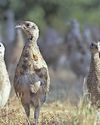
RSPB gives mixed message on shooting
Having recently attended the RSPB’s virtual AGM, Conor O’Gorman discusses the outcome of the charity’s year-long review of game bird shooting
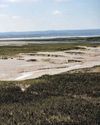
Causeway for concern
Alan Jarrett’s renewed interest in reading takes him down memory lane to an offshore island duck flight that very nearly ended in disaster
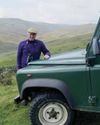
Through a purple patch
The Garrows Estate is taking a conservation-focused approach to restoring the wildlife populations and biodiversity on the Scottish heather moorland.
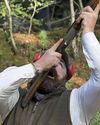
When the wheels fall off
Losing form on a day’s shooting can be infuriating, especially if you’ve been shooting like a god up to that point. Simon O’Leary looks at some common causes and how to remedy them
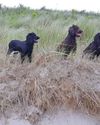
Beaches, books & bad behaviour!
The annual Kay family vacation to Northumberland offers a chance to give the cockers a blast on the beach – although they don’t always shower themselves in glory, as Ryan Kay recalls...
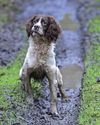
Using the Stop whistle
Now you’ve instilled the basics, it’s time to up the ante with some more tricky distance work. Howard Kirby explains how to take the core Stop whistle command to the next level
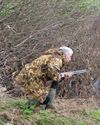
The humble teal
They may be tiny, but as far as Rupert Butler is concerned, the appeal of this little duck is huge. He recalls some of his most memorable nights in pursuit of these aerial acrobats
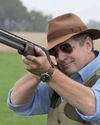
Fab all-rounder
Mike is impressed with the Fabarm Elos B2 Field Notte, which offers great value for money, is suited to fieldwork or clays and is future-proofed for use with steel in all choke constrictions

CALL OF THE WILD
Dom Holtam reconnects with one of the purest forms of shotgun shooting as he walks-up woodcock over pointing dogs in the Scottish Highlands
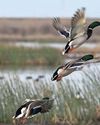
A yen for the Fens
Tony Jackson recounts a memorable duck flight over an area of Fenland in Norfolk with his friend and author, the late Alan Savory